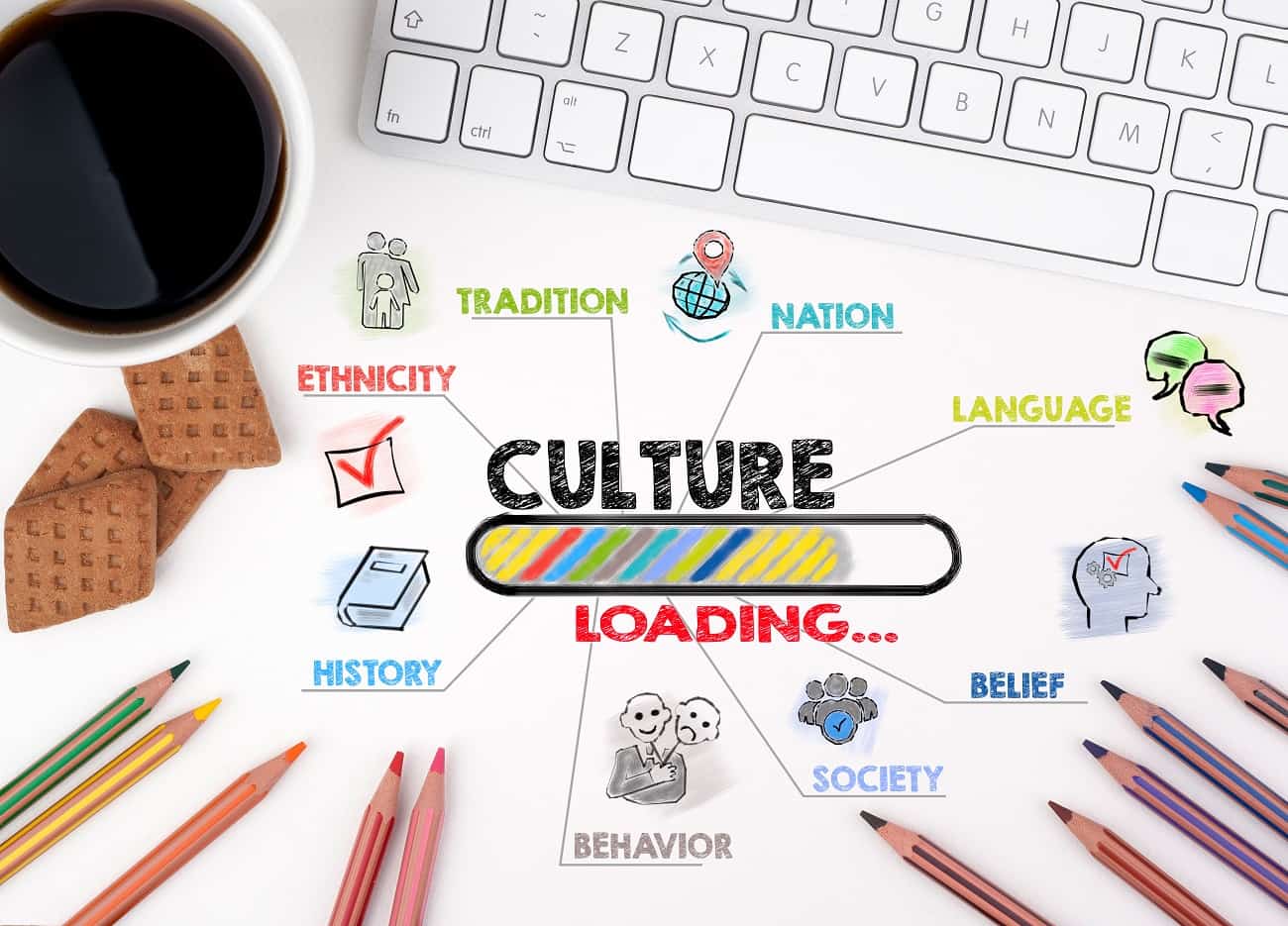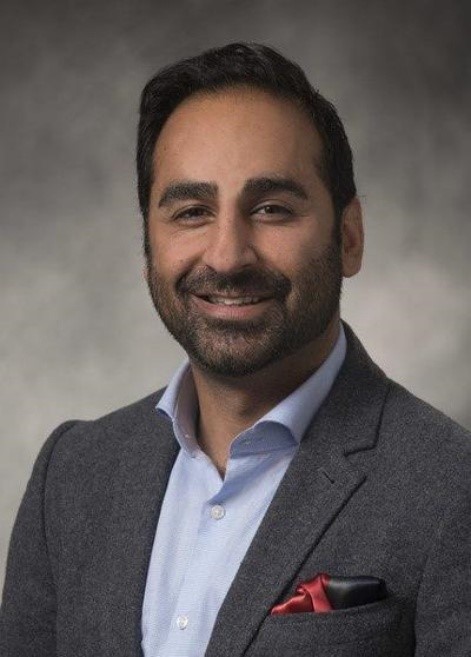
April is Cultural Diversity Awareness Month. My goal of sharing Dr. Nadeem Sarwar’s story is for each of us to take an active role in learning more about each other and acknowledging our differences and similarities. Nadeem and I discussed his personal experiences, challenges, and outlooks for the biopharma industry. He will further demonstrate that differences ≠ deficiencies.
Dr. Nadeem Sarwar is the son of Pakistani immigrants who moved to the United Kingdom (UK). He emigrated to the United States (US) to pursue a career in drug discovery. This path has taken him from growing up in Scotland; to tenure at the University of Cambridge (UK); to now being the President of the Eisai Center for Genetics Guided Dementia Discovery (G2D2) in Cambridge, Mass., a research discovery site of Eisai Inc. During this journey, he has experienced different corporate cultures in the UK, US and Japan, as well as across academia, pharma, and biotech.
What specific challenges have you faced during your career because of your background?
I have always had the fortune of working with smart, successful people. In my experience, such people are motivated to leverage and get the best out of whatever talent is available to them. People who are unwilling to do that are severely limiting the great resources surrounding them. I haven’t yet had to work with such people.
What are some of the key corporate cultural differences you have experienced working at organizations that originate from the UK, the US and Japan?
A big eye-opener for me was the difference in general corporate culture between the UK and US. Because of the common English language, it is a difference that is often underestimated. More broadly, a key thing I have learned is how important it is to be sensitive to differences in corporate culture, and to put in the effort to understand these differences better. In the long run, it can save a lot of time and business impact, which could otherwise be lost through misunderstanding and miscommunication.
Can you give a specific example?
Whenever I am scheduled to have a decision-impacting meeting with colleagues at Eisai’s global headquarters in Tokyo, Japan, I know those colleagues really appreciate the opportunity to review relevant materials and have smaller pre-discussions in advance of the meeting. This ensures that everyone comes to the meeting better informed and more comfortable with what we are trying to achieve. By contrast, colleagues in the US may prefer a more lively and fluid discussion that evolves in real time.
You are now the President of the Eisai Center for Genetics Guided Dementia Discovery (G2D2). How have you found the difference between the culture in pharma and biotech?
I love it. The speed at which we can make decisions and move forward is very enabling, as is the energy created by having everyone under one roof with one focused common goal and mission. At G2D2, we have the best of both worlds. We are an autonomous biotech organization, yet one that is embedded within Eisai. We get to benefit from the dynamic innovation, pace and focus of a small venture organization, while still being able to leverage the operational infrastructure and experience of an established pharmaceutical company.
What is your plan to address and manage diversity within G2D2?
Our scientific focus is founded upon leveraging human genetic diversity, so this also sets the tone for our culture. We have established our entire organization around the premise of innovation without borders. We believe scientific breakthroughs are accelerated when people who don’t typically work with one another come together. In addition, we focus on finding and celebrating our similarities rather than emphasizing our differences. We are a remarkably diverse and balanced organization, of which 50% of our workforce (and leadership) are female. We have over 20 nationalities represented and speak over 30 languages. It’s quite amazing. But the key underlying glue that holds us all together is Eisai’s commitment to develop innovative solutions in disease prevention, treatment, and care for the health and well-being of people worldwide, which we refer to as our human health care (hhc) mission. We focus on removing barriers that may limit people’s ability to collaborate and innovate.
The month of Ramadan is approaching, during which many Muslims fast between the hours of sunrise and sunset. What are some considerations MassBio members should have during this month?
While most people are familiar with the fasting aspects of Ramadan, the month actually involves many additional aspects. A key one is socialization. Ramadan is a very social month, where friends and communities frequently meet to open their fast together. Maybe such socialization aspects could be a key opportunity for MassBio members.
Finally, what should the biopharma community do to fully leverage cultural diversity?
I have a strong passion for inspiring the next generation of medicine makers. When I was young and exploring career options, I was strongly influenced by the opportunity to interact with people I could relate to. Within G2D2, we have several internship programs for young aspiring scientists (ranging all the way from middle school to graduate school). Clearly communicating to future scientific leaders that success in our sector is driven by commitment, innovation, and collaboration rather than culture or background – is an important responsibility.
What is your organization doing to be the change agent for a more inclusive culture in biotech? Share your story with us.
 Nadeem Sarwar’s expertise stems from the intersection of human genetics with collaborative business models for therapeutic discovery. He is President of the Eisai Center for Genetics Guided Dementia Discovery (G2D2), with past experience in academia (Tenured Faculty, University of Cambridge), big-pharma (Senior Director, Pfizer), mid-sized pharma (VP, Eisai), and Biotech (G2D2).
Nadeem Sarwar’s expertise stems from the intersection of human genetics with collaborative business models for therapeutic discovery. He is President of the Eisai Center for Genetics Guided Dementia Discovery (G2D2), with past experience in academia (Tenured Faculty, University of Cambridge), big-pharma (Senior Director, Pfizer), mid-sized pharma (VP, Eisai), and Biotech (G2D2).
His research has been published in leading medical journals, presented at international meetings and profiled by international media. He has provided insights on human genetics and drug discovery to The World Dementia Envoy, Scottish Enterprise, The UK Minister for Life Sciences and the UK Under Secretary of State at the Department of Health. He sits on the US National Academies of Science, Engineering and Medicine’s Roundtable on Genomics & Precision Health (within which he co-leads the Precision Therapeutics working group).